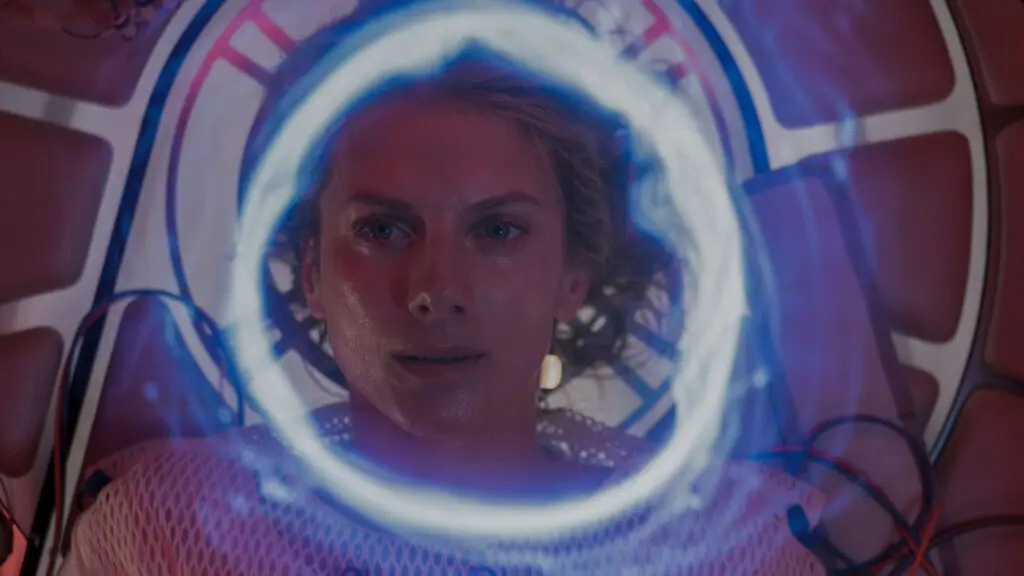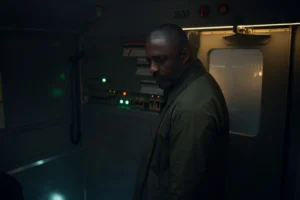Summary
French director Alexandre Aja’s newest film brings together a simple premise with a sci-fi skew, providing a showcase for Mélanie Laurent with a suspenseful, oxygen-depleted experience.
Over the course of French director Alexandre Aja’s career, reeling in audience-goers hasn’t been an issue, despite a lukewarm box office result from his debut High Tension. Since then, over much of the last two decades, Aja grew into a formidable horror director, one that continually outgrossed modest budgets.
With a director as a father and a film critic as a mother, his development shouldn’t be a surprise, as his first short film premiered at Cannes Film Festival, directed by Aja at the age of 18.
Aja’s Oxygen, a Netflix film, began its development nearly four years ago with a different cast and a different director (Franck Khalfoun, also behind Prey). It shows Aja’s ability to craft a film that holds you close and refuses to let go, blending realistic sci-fi with a story featuring minimal characters and little movement outside of a single location, much like 2019’s Crawl, without all of the alligators.
The monsters of claustrophobia and amnesia replace those gargantuan alligators, striking an internal fear that cannot be expressed easily. In Oxygen, he gives Mélanie Laurent (Wingwomen) a full showcase, one likely born out of minimal casts and crews within pandemic restrictions, a sentence that will become tired in the coming months.
Trapped in a cryogenic chamber, with her oxygen dwindling, Laurent stars as Elizabeth Hansen, a woman with no memory of her life before the chamber. She has a little less than an hour and a half of oxygen left, unsure of where she is or how she got there.
It’s a premise that Aja, or any genre director, would be drawn to, and one that should give Laurent a boatload of new fans from the Netflix algorithm, which is sure to push Oxygen onto its front page and into its “Top 10,” a metric that feels both meaningful and meaningless.
Known for playing supporting roles by most casual American movie-goers and streaming surfers, the French actor and filmmaker gives a performance that wriggles into something of brilliance.
Playing out near real-time, the French-language film places the viewer directly into the chamber with Laurent, building tension with the simplicity of a tight space and a need for survival.
Joining Hansen in this chamber is an artificial intelligence assistant, giving her a lifeline to the outside world. She attempts to contact the police, the manufacturer of her pseudo-coffin, and anyone else that might have information about her situation. She gets worked up. She calms down. She gets angry. She calms back down.
It’s a cyclical movie in that way, despite its increasing stress on both viewer and protagonist. She imagines both memories and mirage-like rodents and then snaps back into reality.
With every passing moment, the film rises in urgency, and Laurent becomes more agitated, more frenetic, more willing to stab herself with a needle to bring back her old self. Aja’s affinity for slashers takes a back seat, as the violence in Oxygen is immediate and swift, short-lived in screen-time but necessary in existence.
In time, Hansen discovers her name, her family, her profession, and her reason for being in this chamber. Aja and screenwriter Christie LeBlanc take care of these surprises, which have a genuine nature to them and earnestness in all of the terror of Hansen’s situation.
Laurent sells it all, as the film focuses on every feature of her face, resting on the fright in her eyes, the idea that she’s trapped beside a ticking clock, unable to resume her life, even if her world might have been in the process of crumbling, a smashed relic of a once-idyllic existence.
Oxygen resembles another recent Netflix film, Joe Penna’s Stowaway, similarly taut films with constricted premises. Aja’s film sticks the landing as an additional chapter in the single-human survival story, alongside other futuristic entries containing relevant information from its audiences.
We don’t learn anything before Hansen does, as the claustrophobia becomes tangible, transforming from an ethereal concept that passes in a moment. And the world Aja creates, along with its central character, has real stakes, connected to an actor that forces you to care about the fragility of her life.
Read More: Oxygen Ending Explained




